plenaries
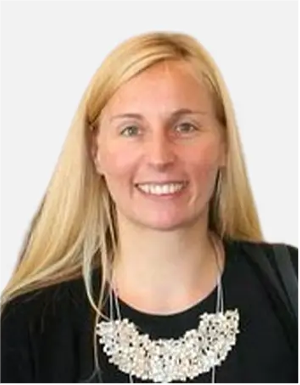
‘Priorities for addressing substance use disorder in humanitarian settings’
Anja Busse, Programme Officer at the Prevention, Treatment and Rehabilitation Section (PTRS) of the UNODC Drug Prevention and Health Branch, coordinates UNODC’s global projects on drug use disorder treatment and care. This includes providing technical assistance to Member States and developing and disseminating technical guidance documents. Anja has contributed to critical tools such as the UNODC- WHO International Standards for the Treatment of Drug Use Disorders (2020), and she is currently working with her UNHCR and WHO colleagues on a handbook to address substance use in humanitarian settings and related training materials. Additionally, Anja is a Psychology graduate (University of Berlin, Germany) with a Master’s in public health (Medical School Hanover, Germany).

‘Substance Use Disorder Treatment: Top 10 Things to Ask’
Dr. Carise is a clinical psychologist and part of the recovery community for 35+ years. An Adjunct Clinical Professor at University of Pennsylvania (since 1997), her career has spanned research, clinical, teaching, and executive positions in behavioral health. She is currently working as an expert consultant/witness on various opioid-related cases. Most recently a founder/Chief Clinical Officer at Recovery Centers of America, she led the all clinical aspects of RCA’s de-novo set-up from clinical building space, zoning meetings, development of RCA’s treatment and recovery services, including detoxification, residential, partial hospital, intensive and traditional outpatient, and family services. CRC had over >100 programs, and she was also Chief Clinical Advisor for Sierra Tucson, a premier facility treating substance abuse, pain, mood, eating and trauma disorders. Phoenix House is a nonprofit substance abuse treatment provider with over 100 programs in 10 states where Dr. Carise developed national standards for clinical care, Clinical Toolkits for over 30 evidence-based practices, and helped usher in a new era of care to position the company to successfully address changes secondary to healthcare reform. She has published over 100 articles, books, and chapters. Dr. Carise is currently an Adjunct Assistant Professor at the University of Pennsylvania, Perelman School of Medicine (since 1997). She has been affiliated with UPENN since completing a NIDA Post-Doctoral fellowship at the Center for Studies of Addiction in the Department of Psychiatry from 1994-96. She earned both her bachelor’s degree (1988) and Doctorate in Clinical Psychology (1993) from Drexel/ Hahnemann University. She has worked extensively internationally, with treatment providers in Nigeria, Mexico, Thailand, Egypt, Greece, Singapore, Brazil, China and numerous other countries to help develop national systems that integrate scientifically validated tools into clinical treatment delivery.
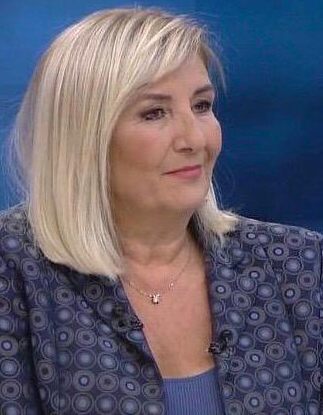
‘Deep Transmagnetic Stimulation Therapy (d-TMS) and Electroconvulsive Therapy in the treatment of Addiction and Comorbid Psychosis’
Dr. Nesrin Dilbaz, Professor of Psychiatry , in the Üsküdar University of Medical and Üsküdar University English Psychology Department and she directs NP Brain Hospital Addiction Treatment Center and also she directs the Addiction Research and Applied Center of Üsküdar University. She worked as the founder and president of Ankara Substance Abuse (Treatment and Research Center AMATEM) between 2004-2011. Dr. Dilbaz, who won the 2007 Best in Social Responsibility award with her work on the protection of young people from substance use in Türkiye. She worked on the Substance Addiction Treatment Platform with the United Nations, the European Union and the Council of Europe Pompediu Group. Dr. Dilbaz, who has also been working as a member of the National Coordination Board of the National HIV-AIDS project carried out by the Global Fund and the Ministry of Health, the National Tobacco Board and the Ministry of Health Substance Abuse Scientific Commission since 2005, is also member of the American Psychiatric Association, Neuroscience Education Institute, World Biological Psychiatry Association, World Schizophrenia Association, Turkish Psychiatric Association, Turkish Neuropsychiatry Association, Turkish Addiction Association, Red Crescent Society Central Board Membership She is also the national coordinator of European ESPAD Group and Works together with the Ministry of Health and the United Nations on “The Profile of Substance Abuse Among 16-Year Old High school Students in Turkey,” Dilbaz, is also on the editorial board of CNS Spectrum. She is currently the founder and active president of the Mental Health, Brain and Addiction Research Association. She has more than 200 publications, national and international book chapter authorship and edited books. She is the editor of the Addiction Textbook.

‘Translating Evidence into Practice: Quality Standards, Guidelines and Training by the European Union Drug Agency’
Marica Ferri is a distinguished European researcher and expert in the field of public health and addiction. She holds prominent roles within the European Drugs Agency (EUDA), leading research, training and implementation of evidence-based recommendations for practice and policy. Ferri's work primarily focuses on the development and evaluation of public health interventions aimed at preventing and treating substance use disorders. With a strong academic background and numerous publications, she is strongly committed to advancing the understanding and management of addiction across Europe and beyond.
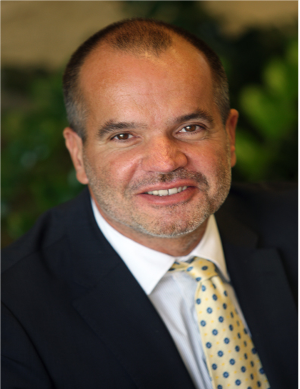
‘Treating people who use drug in custodial settings’
Andrej Kastelic, MD, PhD is the head of the National Center for the Treatment of Drug Addiction at the University Psychiatric Clinic in Ljubljana (Slovenia, EU) and a teacher for addiction, psychiatry and mental health at the University of Ljubljana. He is a consultant/expert, especially in developing addiction treatment programs in communities and custodial settings for UNAIDS, UNODC, WHO, EU, Council of Europe – Pompidou Group, EMCDDA, OSCE, Global Found. He has been involved as a consultant and principal trainer in developing treatment and harm reduction programs in several countries like Austria, Azerbaijan, Egypt, Estonia, Georgia, Hungary, Island, Kosovo, Portugal, Romania, Russia, Serbia, South Africa, Ukraine, Tajikistan, Taiwan, Turkey and some Caribbean countries. Andrej has been the President of the Global Addiction Association and has served as Secretary General of the European Opiate Addiction Treatment Association (EUROPAD). He is a founding member of the World Federation for the Treatment of Opiate Dependence (WFO), President of the South Eastern European and Adriatic Society, President of the SEE Adriatic Addiction Treatment Network (SEEA net), founding member of ISAM and used to be Board Member of World Association on Dual Disorders (WADD). He received the Dole–Nyswander Award in 2001 from the American Association for Treatment of Opiate Dependence (AATOD), the Gold Reflection Award in 2002, the Slovene Ministry of Justice Award in 2005 and the EUROPAD “Chimera” Award in 2008.
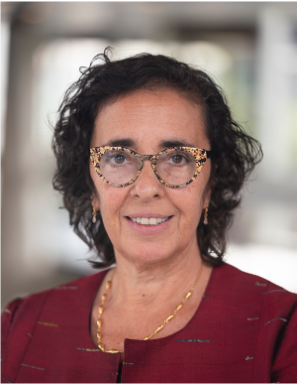
‘Strengthening global efforts in addressing substance use and addictive behaviors: an update from WHO’
Dévora Kestel is a senior mental health policy specialist with more than twenty-five years of international experience in Europe, the Caribbean and Latin America, implementing and advising governments on national policies related to mental health systems. She is a strong advocate for the rights of people with mental health issues. Ms. Kestel obtained her MSc in Psychology from the Universidad Nacional de La Plata in Argentina and her MSc in Public Health at the London School of Hygiene and Tropical Medicine, UK. After completing her university studies in Argentina, she worked for ten years in developing and supervising community-based mental health services in Trieste, Italy. In 2000, she joined the WHO as a mental health officer, first in Kosovo and then in Albania, where she became the WHO Representative to Albania. In both countries, she worked closely with the Ministries of Health to help establish comprehensive community-based mental health systems. In 2007, Ms. Kestel joined the PAHO/WHO as the Sub-regional Mental Health Advisor for the English-speaking Caribbean Countries based in Barbados. In 2011, Ms. Kestel was appointed as the Regional Mental Health Advisor at the headquarters in Washington, DC, providing technical cooperation in the mental health field to the entire region. In 2015, she became the Unit Chief for Mental Health and Substance Use at PAHO/WHO. Over the years, Ms. Kestel has contributed to and co-authored publications in mental health. Since 2019, Ms Kestel has been the WHO Director of the Department of Mental Health and Substance Use.
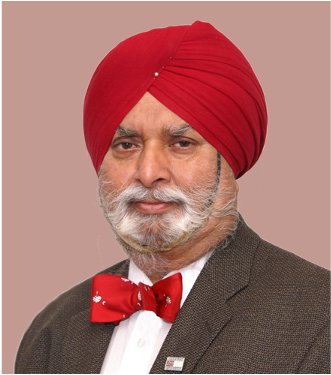
‘Treatment of People with Substance Use Disorders with Co-occurring Infections (HIV, HCV, SARS-2, and others)’
Jag H. Khalsa, MS, PhD, DFISAM, currently is serving as a Special Volunteer at National Institute on Drug Abuse, NIH, following retirement in October 2017 after 40 years of US Federal service (10 at FDA and 30 years as the Chief, Medical Consequences of Drug Abuse and Infections Branch, NIDA/NIH); and as an Adjunct Professor in the Department of Microbiology, Immunology, and Tropical Diseases at GWU School of Medicine and Health Sciences, Washington, DC, and Institute of Human Virology, U. Maryland School of Medicine, Baltimore, MD, USA. He is a recipient of numerous meritorious awards including ones from the FDA Commissioner, NIH and NIDA Directors, and several Lifetime Achievement awards in Addiction Science and Addiction Medicine including the Distinguished Fellow of ISAM award. He serves on several editorial boards including the Journal of Addiction Medicine.
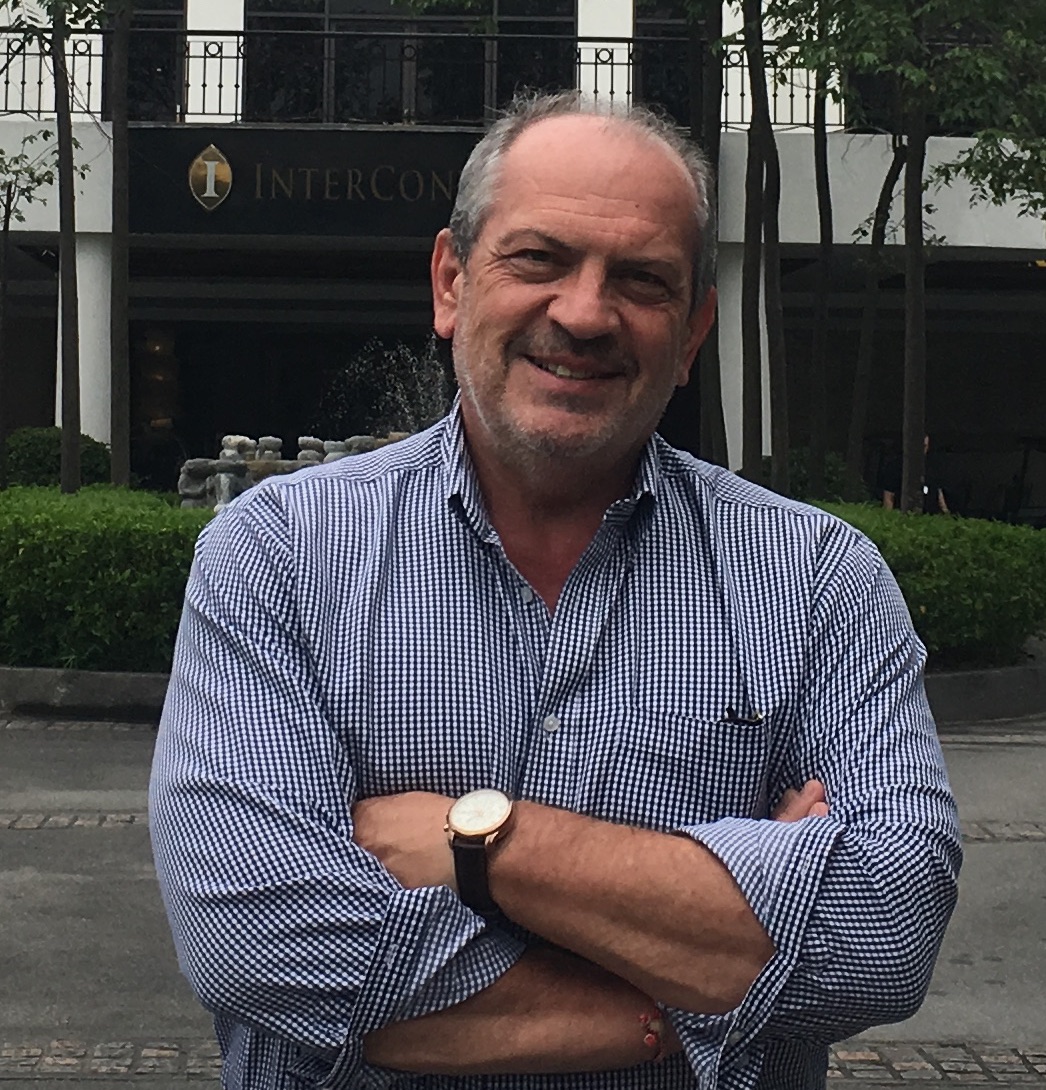
‘Treatment of Clients with Substance Use Disorders in Criminal Justice Settings – How to Make it Work?’
Igor Koutsenok, MD, Professor of Psychiatry at the University of California San Diego, Director of the UCSD Center for Criminality and Addiction Research, Training and Application, Director of the International Addiction Technology Transfer Center-Ukraine. He is also a Vice-President of the International Consortium of Universities on Drug Demand Reduction. He completed his graduate degree as a medical doctor in 1983 from the National Medical University in Kiev, (Ukraine). In 1986, he completed his psychiatry residency training and received degree as psychiatrist from the Medical University in Sofia (Bulgaria). In 1993-1996 he completed the addiction psychiatry training and obtained a degree in addiction psychiatry at the University of London, Department of Addictive Behavior and Psychological Medicine at St. Georges Hospital Medical School. In 1996, he was recruited by the University of California San Diego, School of Medicine, Department of Psychiatry and since then he serves as faculty member of the Department. In 2013-2016 he served as Chief of Prevention, Treatment, and Rehabilitation at the United Nations Office on Drugs and Crime, United Nations Office in Vienna. Dr. Koutsenok is also a member of the International Motivational Interviewing Network of Trainers (MINT). Over the last 25 years Dr. Koutsenok led the design and implementation of multiple training and technical assistance programs for mental health and addiction treatment practitioners, primary health care and social work practitioners, criminal justice professionals in the United States and around the world. For many years, Dr. Koutsenok teaches general and addiction psychiatry to medical students, psychiatry residents, psychology trainees, social workers, criminal justice professionals, and policy makers around the world. He is a recipient of numerous national and international awards. He has authored and co-authored over 60 scientific publications, one monograph, and contributed to 5 books. Dr. Koutsenok has been invited as a presenter and trainer to hundreds of conferences and workshops in the USA and more than 30 countries around the world. He is a proud father of three and a professional jazz musician.
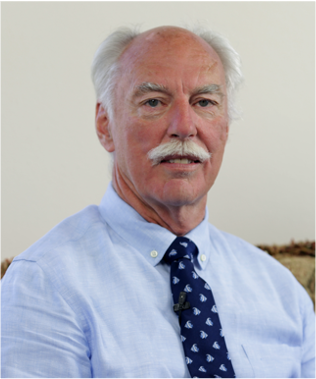
‘Pre-Addiction: An Overlooked Part of the Substance Use Disorder Continuum’
Dr. McLellan has been a career researcher for 45 years at the Treatment Research Institute (1992 – 2012) and as a Professor in Psychiatry at the University of Pennsylvania, Perelman School of Medicine (1978 – 2014). In his career he has published over 650 research articles and successfully completed over 150 NIH research grants. He has received Lifetime Achievement Awards from the American, Swedish, Italian and British Societies of Addiction Medicine – and jointly from the National Institute on Drug Abuse and the National Institute on Alcohol Abuse and Alcoholism. Dr. McLellan served for two years as Deputy Director of the White House Office of National Drug Control Policy and a senior author of President Obama’s National Drug Control Strategy. In 2016 Dr. McLellan served as Senior Editor for the U.S. Surgeon General’s report, Facing Addiction. Dr. McLellan holds a B.A. from Colgate University and a Ph.D. from Bryn Mawr College. He received postgraduate training in psychology at Oxford University in England.
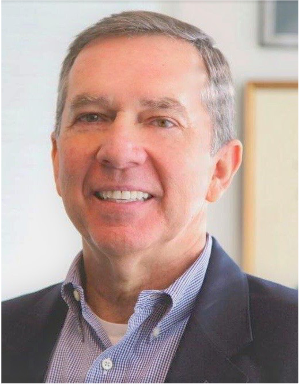
‘The Neuroscience of Addiction Recovery’
Dr. Montoya is the Director of the Division of Therapeutics and MedicalConsequences (DTMC) of NIDA. He has a Medical Doctor and Psychiatrist degree from the University of Antioquia in Colombia and a Master’s in Public Health from Johns Hopkins University. He was a Humphrey Fellow at Johns Hopkins and a Visiting Fellow at the Intramural Research Program of NIDA. He joined NIDA’s extramural program in 1999 as a Medical Officer of the ClinicalTrials Network, became the Deputy Director of DTMC in 2008 and the Director of DTMC in 2024. He has participated in the development of multiple medications for Substance Use Disorders (SUD) that have received FDA approval, including buprenorphine, probuphine®, depot naltrexone, lofexidine, intranasal naloxone, intranasal nalmefene, etc. He has published extensively about treatments (pharmacological and non-pharmacological), as well as the medical consequences of SUDs. He has received multiple awards, including the NIH Director’s and Michael Morrison awards from CPDD. He is also an Honorary Professor at the University of Valencia (Spain).
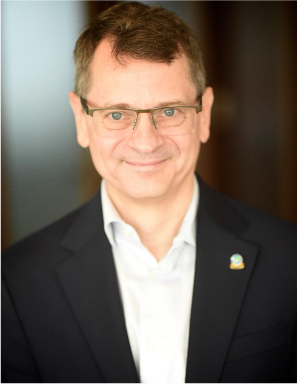
‘Publishing Addiction Medicine’
Dr. Potenza is the Stephen M. Southwick Professor of Psychiatry, Professor in the Child Study Center and Neuroscience at the Yale School of Medicine, and he directs the Division on Addictions Research, Center of Excellence in Gambling Research, Women and Addictive Disorders Core of Women’s Health Research at Yale and Yale Research Program on Impulsivity and Impulse Control Disorders. Dr. Potenza is a board-certified psychiatrist with sub-specialty training in addiction psychiatry. He has contributed to our understanding of clinical and neurobiological underpinnings of addictive disorders and the development of prevention and treatment strategies. Dr. Potenza’s research has applied neuroimaging, genetic, epidemiological and clinical trials methodologies. Dr. Potenza has mentored over 200 scholars and published over 800 manuscripts and chapters. He is a member of over 15 journal editorial boards (including editor-in-chief of Current Addiction Reports) and sits on the Boards of multiple national/international organisations. He is president-elect for the International Society of Addiction Medicine and has consulted to the Substance Abuse and Mental Health Services Administration, National Registry of Effective Programs, the National Institutes of Health, the American Psychiatric Association and the World Health Organization, including on matters relating to problematic use of the internet such as social media.
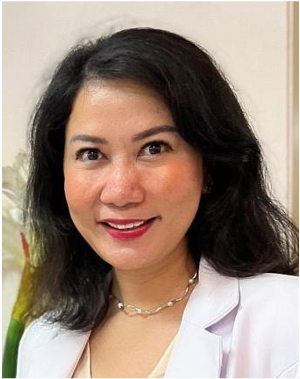
‘Beyond the tip of the iceberg: Challenges in overcoming methamphetamine use among women’
Dr. Siste attended the medical school at the Faculty of Medicine, University of Indonesia. She pursued further training as a psychiatrist at the same institution. Since 2009, she has been a Lecturer at the Department of Psychiatry, University of Indonesia. She obtained qualification as an addiction psychiatrist in 2013. She is particularly interested in neurocognitive function, genetics, neuroimaging, adherence to treatment, prevention, treatment and rehabilitation of substance and non-substance addiction (gaming and gambling disorder). Since 2010, she has conducted several research projects in addiction psychiatry. Currently, she is developing a questionnaire for teenagers with internet addiction while running a national survey for teenagers with internet addiction in Indonesia. She was also a pioneer in the development of the one-stop service for patients with substances, behavioral addiction and HIV/AIDS, National Behavioral Addiction Study Center and National Behavioral Addiction Treatment Center based at dr. Cipto Mangunkusumo General Hospital/Faculty of Medicine University of Indonesia. She also contributes as a senior lecturer for undergraduate of medical programs, psychiatry registrar and sub-specialist at Faculty of Medicine, University of Indonesia. She frequently shares about addiction and HIV/AIDS prevention and treatment, provides training for peer-support and addiction prevention skills across schools and communities in Indonesia. She is vice president of the Addiction Psychiatry Division-Indonesian Association of Psychiatrist, member of International Working Group on Behavioral Addiction, Committee member of the International Society for Biomedical Research on Alcoholism and expert member in the National Narcotics Board in Indonesia.
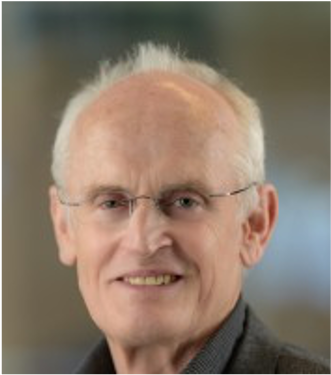
‘Update on Preventive, Treatment and Recovery strategies to prevent opioid-related deaths’
Professor Sir John Strang has published extensively in the addictions field, with more than 500 publications. He is Head of the Addictions Department and is also Leader of the Addictions CAG (Clinical Academic Group) of Kings Health Partners AHSC (Academic Health Science Centre). He also has extensive experience as a Lead Clinician in charge of a wide range of treatments in community and residential settings and has been a Consultant Psychiatrist in addictions treatment for over 30 years. Professor Sir Strang also provides the overall leadership for the Addictions CAG within King’s Health Partners, and forms one of the core areas of the Academic Health Science Centre. Professor Sir Strang has chaired and/or served on key committees or guidelines groups for the Department of Health, for NICE and for the WHO. He trained as a medical doctor (MBBS) and then specialised in psychiatry – first at Guy’s and then at the Maudsley. He has worked in the addictions field since the mid-1970s. Current research interests include: new analyses of impact of public policy; potential approaches involving family members and take-home emergency naloxone to prevent heroin-overdose deaths; incentive-based interventions to improve treatment effectiveness in reducing drug use and associated harms; clinical trials of potential new pharmacotherapies and behavioural and psychological therapies in the addictions field; investigations of supervised injecting clinics for managing entrenched heroin addicts who cannot otherwise be engaged in treatment.
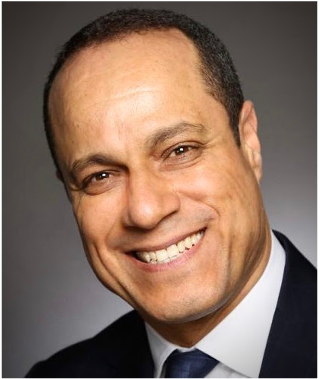
‘Drugs, Challenges Facing The World: The Role of The International Narcotics Control Board’
Dr. Toufiq got his specialization degree in psychiatry at the Rabat Faculty of Medicine in 1992. He was granted fellowships in Psychiatry and addiction medicine in France. He opted for a sub-specialization in substance use and applied-epidemiology in 1993. He was selected as a NIDA research fellow at Johns Hopkins University School of Public Health and studied there in 1994-95. He became an associate Professor in Psychiatry in 1997. He contributed to the creation of the first center for drug abuse treatment in 1999. As a professor of Psychiatry, he became the Director of the University Psychiatric Hospital in Salé in 2005. He has held the position of the Moroccan Representative at the MedNET Network of the Pompidou Group since 2006. He was appointed the Permanent Correspondent for Morocco at the Pompidou Group (the Council of Europe). He co-founded the Middle East and North Africa Harm Reduction Association. He served as an expert and consultant for many organizations such as WHO, UNODC, African Union, Council of Europe. In 2015, He was elected by the ECOSC as a member of the UN International Narcotics Control Board in Vienna for which he got reelected for a second five-year mandate in 2020. He is also on the board of the ICUDDR. He also served as the Minister of Health advisor for mental health and drug use issues in the early 2000s. He teaches at the University of Rabat Faculty of Medicine. He founded the University Diploma on Addictology at the university of Rabat. He is the current President of the International Narcotics Control Board of the United Nations.
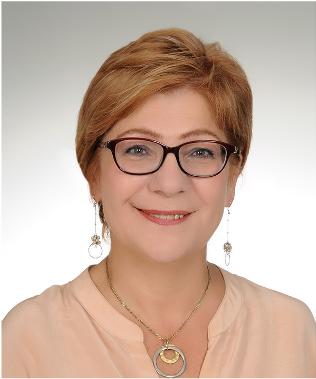
‘Seeing affective and psychotic disorders through addictions: What we learn from case studies’
Professor and Chair of the Department of Psychiatry, School of Medicine, Hacettepe University, Ankara, Turkey. In 1995-96 she completed the fellowship program for “alcohol and drug abuse/addiction treatment and prevention” as a NIDA/ Humphrey fellow and also got a degree for the Master of Public Health at the Johns Hopkins University. Since then she has been actively involved in training, clinical practice and scientific research on addictions. Her professional orientation has been focused on psychiatric comorbidities and transdiagnostic treatments in the last decade. She acted as a principle investigator and researcher in the field trials of diagnostic classification and disability research conducted by the World Health Organization (WHO). She is the director of the Center for Addiction Research at Hacettepe University, the associate editor of Turkish Journal of Psychiatry and the president of the Turkish Association for Nervous and Mental Health.
